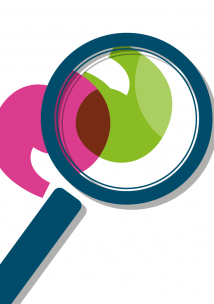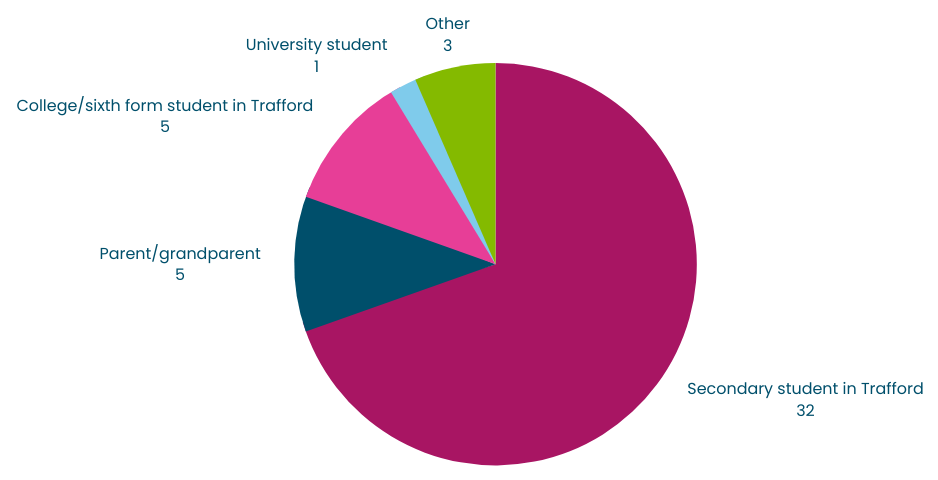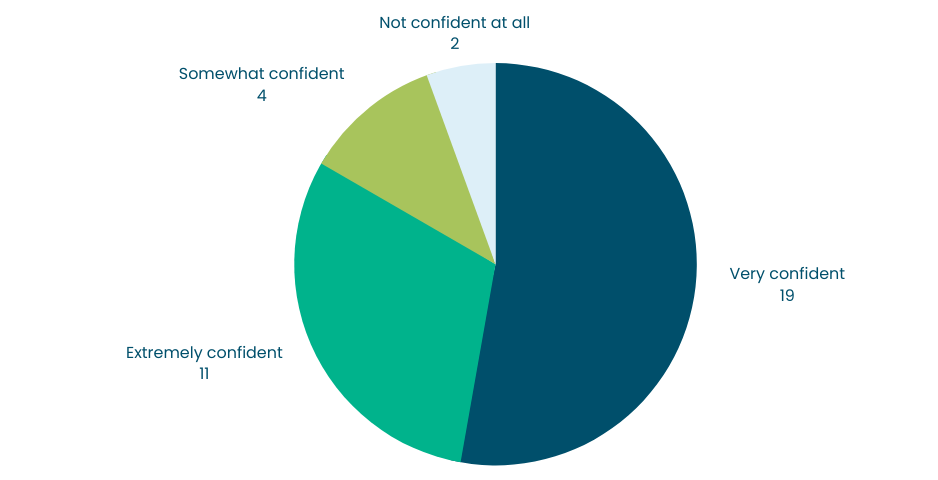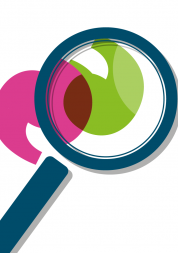Young People’s Digital Mental Health Support

Project background
Since COVID-19 began, health and social care has rapidly expanded online, and mental health provision is no exception. The demand for mental health care has also increased alongside this, including among children and young people. While the topic has been one earmarked for improvement since before the pandemic, lack of access to physical services and increased demand has made it all the more important to address. In fact, the Local Authority recently published their Trafford Local Transformation Plan Children & Young People’s Mental Health & Wellbeing 2022-2023, which set out their intention to maintain and improve young people’s mental health.
It has been suggested that digital services make mental health care more accessible, provide support for patients waiting for appointments, and can in some cases act as a preventative measure to stop mental health worsening. We also realised that despite growing demand, there was not a significant body of research on the topic. We wanted to find out more about what digital mental health services are available for young people in the borough, and how much people knew about them. We also wanted to get a better understanding of how effective or easy to use young people found them. This would inform our recommendations and improve our signposting, as well as help create a conversation with commissioners and local providers.
This project benefited from the support of our intern, who joined us from the University of Manchester and worked with us for eight weeks during the summer of 2023.
What we did
In order to prepare for the arrival of our intern, our Research and Projects Officer did thorough desk research on the nature of digital mental health in Trafford and Greater Manchester, to identify the key providers and gather information readily available online.
We also used our own contact network to consider how to engage young people and utilised a survey to gain an initial picture. Our mailing list, social media, and Youthwatch volunteers supported this stage.
We looked at previous work by other local Healthwatch to identify any findings that were relevant to our research as well as relevant publications nationwide. Aside from work conducted by Healthwatch Trafford, there were no Healthwatch reports looking solely at digital mental health services for young people.
Who we spoke to

Pie chart showing where our survey respondents came from.
- We contacted several organisations that work specifically with young people, including 20 schools and colleges, 1 university, and 4 charities, to get a greater range of responses across Trafford. We heard back from 1 school and 1 charity, who shared the survey with their communities and on their social media.
- We spoke to officers from the local authority who worked in a variety of areas related to children and young people, including commissioners, Public Health, and the Trafford Council Youth Engagement Team.
- We held several meetings with service providers and got a much more comprehensive picture of the digital support offer for young people in Trafford. We were also provided with some data from the SilverCloud® platform and 42nd Street. We spoke to:
- 42nd Street
- SilverCloud® by Amwell®
- SelfHelp GM
- Place2Be
- The Proud Trust
- We contacted Kooth, CAMHS, ChatHealth, and Bluesci, however, unfortunately we were not able to get a response within the timescale of this project.
- We met with Trafford Community Collective, an organisation representing voluntary community, faith, and social enterprise groups in Trafford. They are involved in the Youth Engagement Service at Sale Talkshop, meeting regularly face to face to discuss issues relevant to young people.
- We heard about ongoing work to engage young people by the CYP Mental Health Comms and Engagement Task and Finish Group meeting, furthered by the Youth Engagement Service. The group meets monthly with service leaders across Trafford to discuss ongoing work.
- We also met with the following organisations, to get more insight into the digital support that they offer, and their perspectives on the move to digital.
- UA92
- Trafford College
- Counselling and Family Centre
Key findings
- Increased waiting times for established mental health support services since the COVID-19 pandemic, which demonstrates the need for digital support.
- Digital mental health is still an emerging area in both Trafford and Greater Manchester. We saw that NICE has only recently completed Early Value Assessments of some services such as the SilverCloudÒ platform.
- There is significant overlap between Greater Manchester and Trafford provision. Greater Manchester Integrated Care Board (GM ICB) commission Kooth, and the SilverCloudÒ platform on behalf of Greater Manchester localities.
- Digital mental health support for children and young people was very broad and covered different areas. Young people have many options including ‘open-access’ services, and those that require professional referral.
- Commissioned digital services range in the level of support that they provide: some offer individualised support for each young person, while others provide low-level support resources, usually focused on specific difficulties.
- Parents and carers of children with mental health difficulties are offered a variety of support options in Trafford, such as online programmes and workshops.
- Most commissioned services offer limited accessibility tools such as those for screen readers, and few offer support in different languages.
- Digital services do conduct monitoring of user data and effectiveness, though this is not fully comprehensive and is usually not publicly available.
- There are a wide variety of national services available by self-referral which range from support for specific difficulties to generalised mental health needs. Many of these are signposted to by Trafford organisations.
- Survey results found that young people had very mixed experiences, but generally had not used most digital services and thought that improvements could be made to promote and personalise support options. It should be noted that most of our respondents identified as female, White British, and were aged under 17.
- Survey results showed Kooth to be the most well known and accessed service amongst respondents. Findings from other local Healthwatch and national publications show that most young people are not aware of all the support that is available to them and would like to know more.
- Digital services appear to offer key advantages, including anonymity, variety of support, low or no wait times, and easy accessibility, including out-of-hours support.

Pie chart showing how confident survey respondents felt knowing how to use and access digital mental health services.
Our recommendations
- Access to location-based monitoring data to make informed choices as there is evidence of the value of digital support for young people[1]. Services and outcomes should continue to be monitored by providers, scrutineers, and commissioners.
- Further independent user testing to understand digital services from young people’s perspectives, including finding out if they complement existing services, can be used while on waiting lists, and if they work as a preventative measure.
- Publicise an easily accessible list of services outlining what is on offer for which age groups. We understand that Trafford Council have developed Padlets (p.36) for this. Local GPs and the VCFSE should make this available to patients, especially when referring young people to in-person services with long waiting lists.
- Increase publicity generally by service providers to raise awareness of digital services via local radio, social media, or in places that young people likely frequent.
- Contingency plans by commissioners about what would happen if one or more of these services were withdrawn, and where existing users would be sent for support instead, especially as demand for support overall increases nationally.
- Improved accessibility tools including offering a range of language options, especially those most widely spoken in Trafford. Services should strive to fully comply with Web Content Accessibility Guidelines (WCAG) version 2.1 level AA[2].
- Provision for young people without digital access as not everyone can get online. For example, the free data packages offered by 42nd Street, or access to digital devices.
- External services should be subject to quality control before signposting. Commissioned services are already monitored for effectiveness, but all resources should be accurate, up to date, and valuable before being suggested to young people.
- More support aimed at 19–25-year-olds in the transition period from child to adult mental health services. Different services cap their support at different ages, and it should be made clear what happens when users reach the top of that age bracket.
- More specialised support. To be as effective as in-person care, digital services should take a person-centred approach and if not, they should offer support that is evidence-based and clearly marketed to young people so that they can make informed choices.
- Further Healthwatch work on this topic, such as investigating how provision differs across areas like Greater Manchester to see if there are issues with equity of access.
[1] Remote Mental Health Interventions for Young People – 13 July 2020 https://www.youthaccess.org.uk/publications/research-evaluation/remote-mental-health-interventions-young-people
[2] Web Content Accessibility Guidelines (WCAG) 2.1 https://www.w3.org/TR/2018/REC-WCAG21-20180605/ 05 June 2018
Reflections from our student intern, Holly Eades
"I have really appreciated my time with Healthwatch Trafford and learned a great amount. As a Psychology student with a particular interest in mental health and research, I was interested in pursuing this project to learn more about the support system in place and develop a project that would benefit local people. Prior to this project I was unaware of many of the digital services that we focussed on and had limited knowledge of the commissioning process and how the CYP mental health service functions. My knowledge of these issues and more has been developed during this internship, and I feel much more capable of approaching these areas, understanding different perspectives and how they impact on local people.
This project has allowed me to see how research can be conducted outside of the academic settings I am used to. I have found that in comparison, this project has been much more exploratory and organic. This has enabled me to become more adaptable and introduce personal perspective into the project, which has been a new approach to research for me, but I have seen how it can be very beneficial in a variety of contexts including social care.
I have learned how much work goes into developing a research project, and how what appears to be small details have a great impact on the work overall. For example, creating a survey involves many different aspects that must be considered in detail, from developing each question effectively to introducing logic. This has allowed me to appreciate each step in the process and build upon the research to make recommendations for future work.
I feel that my confidence has grown in effectively communicating to get relevant information in meetings, and I have had very positive experiences with talking to service providers and commissioners who have been willing to discuss the project in detail with me. I also feel that my skills in report writing have developed, as I have learned to adapt when new information is collected, and feedback is given. I will take forward all the skills I have learned during this project into the remainder of my degree and beyond.
Seeing this project form over the last 8 weeks has involved a big learning curve for me but it has been incredibly rewarding and I am pleased with how each aspect has come together. I appreciate every individual who has supported me during this process.”
Concluding comments
We set out to build on our previous work around young people’s digital mental health services which previously focused solely on Kooth. Thanks to the support of our intern and of those that have offered us advice, information, and support, we have been able to achieve this.
One of the reasons for the growing use of digital mental health services has been the COVID-19 pandemic, with increased waiting times for access to traditional mental health services. Records from local scrutiny committee meetings show continuing concern over this issue, and how one response has been the commissioning of more digital mental health services.
Commissioning developments at both Greater Manchester and Trafford level in recent years have meant that young people in Trafford now have access to many online mental health platforms offering a range of different services. For example, Kooth offer online support including one-on-one chats with a counsellor, forums, articles, and activities. In contrast, the SilverCloud® platform consists of online self-managed CBT-based programmes.
It is apparent from the monitoring reports we have seen that hundreds of people are now accessing these services in Trafford, and that users most commonly find out about them through schools. Kooth’s user base has expanded since our last report and it is now the most popular platform; other commissioned services currently see lower user numbers but with effective promotion may see similar trends.
Key advantages of digital mental health services as outlined in our report - and supported by national findings - are the potential for anonymity and ease of access. Many digital services can be accessed at any time of day, in contrast to a lot of in-person support. Therefore, young people can and do reach for support whenever they need. For example, most Kooth logins are outside of standard office hours.
Referral is still required in some instances: for example, 42nd Street complete an assessment before they give access to their digitally supported system, as they feel this offers the best outcomes. Awareness seems to be the key barrier to access this type of service, and young people have consistently expressed that they want to hear more about the support available to them. This is consistent with findings from other national and local publications.
Some of the organisations that we spoke to such as the Counselling and Family Centre and Place2Be raised concerns that there are potential limitations to digital support. There were similar perspectives in national publications, such as the CQC 2020/21 State of Care report[1]. One particular point raised was the extent to which a therapeutic relationship can be formed in online one-to-one counselling, due to digital restrictions, lack of safe space, and issues perceiving body language.
Whilst our engagement for this project was limited by the time frame available, it was broadly suggested that digital mental health support is useful. We heard about the importance of individualised support following concerns about how personalised a user’s experience could be online, and that this is something services should focus on. It also seemed that whether support is effective or not depends on more than just location. Making young people aware of the various options available to them both in-person and digitally would allow them to make a decision best suited to their needs. Young people may benefit from both, and it is clear that digital platforms should exist alongside face-to-face care. As this is a developing area, we would like to encourage further work and engagement in Greater Manchester, particularly around equity of access.
Overall, this work has updated and expanded our understanding of this area, which will benefit those who come to us for information and signposting. It also allows us to better represent young people’s voices in the forums we attend.
[1] State of Care 2020/21 (n 15).
Downloads
Download the full report including statistics below. If you require this in an alternative format, please get in touch.
